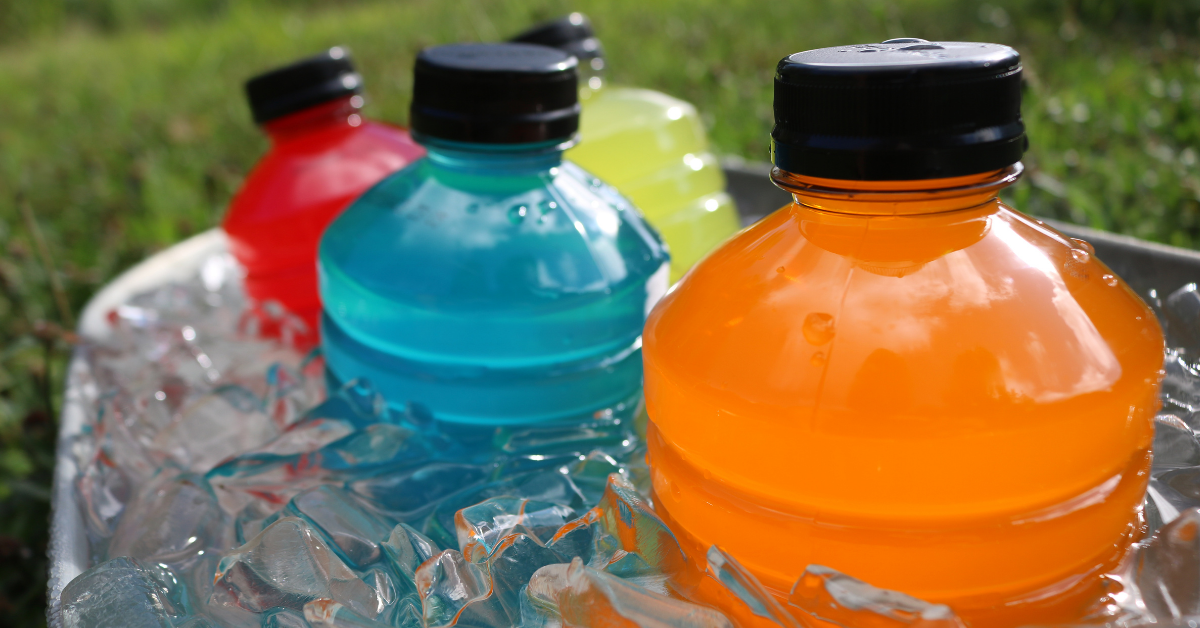
You’re working out, breaking a sweat and thirsty, so you reach for your sports drink to rehydrate. It’s supposed to be good for you with all those electrolytes, right?
That depends on the workout. Is it a quick jog or are you running a marathon in high heat? Sports drinks can replenish the water and electrolytes that are lost in sweat for athletes and individuals working out for long durations, but on the flip side, sports drinks can also contain a great deal of sugar.
The physicians of Tryon Medical Partners Gaston want you to remember these six things before you grab your next sports drink.
1. Determine Your Workout
If you plan to work out intensely for longer than an hour, a sports drink will help keep performance at peak levels. When you exercise, you not only lose water, but also electrolytes through your sweat. Sports drinks can help to restore the lost electrolytes and keep you hydrated.
2. Replace Minerals Lost in Sweat
If you’re working out for long periods of time, your body will need electrolytes found in sports drinks to replace the minerals lost in sweat — mainly sodium, calcium, magnesium and potassium. These electrolytes can help balance the amount of water in your body and keep you hydrated.
3. Reach for Water
Water makes up the majority of your body weight and is critical for proper function. If you’re going for a quick run or your workout is under an hour, water is the best form of hydration.
4. Read the Label
Always read the label to determine which sports drink is best for you. The drink’s carbohydrates should come from glucose, sucrose and/or fructose — all of which are easily and quickly absorbed. Try to avoid artificial flavors and colors, added sugars and high fructose corn syrup.
5. Avoid Too Much Sugar
Water is the main ingredient in sports drinks, but they also contain other substances, including carbohydrates and electrolytes. The carbohydrates in these drinks are often in the form of sugars.One 32-ounce sports drink can contain between 56 and 76 grams of sugar – equal to about 14 to 19 teaspoons. Yes, that’s a lot. The American Heart Association recommends consuming no more than six to nine teaspoons, or 24 grams of sugar daily, for women and men respectively.
6. Watch Your Sodium Levels
Runners and athletes who work out for long periods of time can lose on average one gram of sodium per liter of sweat. It’s important to hydrate and consider beverages that can replace this lost sodium since low levels can lead to muscle cramps, nausea, vomiting and dizziness. If you exercise indoors in a gym or even outside for only a short period of time, it might not be necessary to add sodium to your diet.
Exercise is great for us, and knowing what our bodies need to stay hydrated is important. Scheduling a check-up with your physician is the best step in making sure your exercise and diet are in line with your whole health, body and mind.
